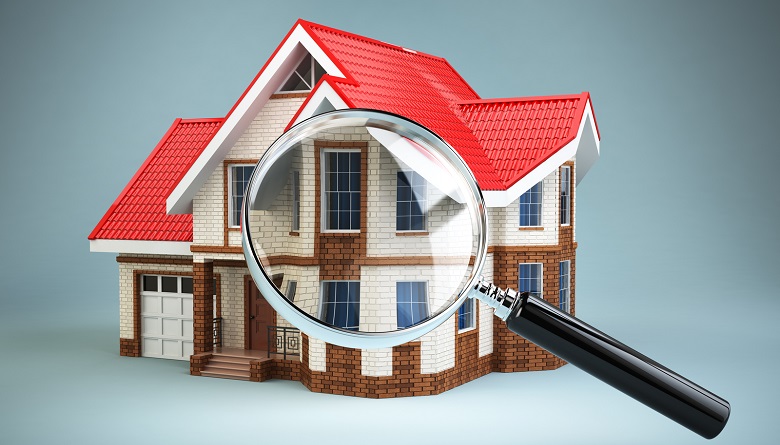Home Inspections
A home inspection can be one of the most nerve-wracking experiences in the home buying process, regardless of whether you are the buyer or the seller. If you are the seller, you are concerned that some unknown issue could force you to drop the price, pay for repairs, or seek another buyer. As the buyer, you are worried that unforeseen issues may persuade you out of your new home or force you to conclude that it is not worth the asking price. Either way, it is important to know the truth about a home before a transaction takes place.
Buyers typically hire the home inspector as part of the mortgage loan process, but sellers sometimes ask for home inspections prior to putting a home on the market as a pre-emptive measure. Home inspections tend to cost anywhere between $200 and $500, so a pre-emptive inspection may well pay dividends in allowing you to fix problems before sale and/or ask for a higher price with confidence.
How do you choose a home inspector?
Your realtor may have a list of preferred inspectors, and friends and relatives may also have an opinion — but follow up on any suggestions. Check for professional affiliations such as membership in the National Association of Home Inspectors or similar organizations.
What should you expect during a home inspection?
The home inspector should conduct a thorough review of the complete physical structure of the house and its supporting systems — mechanical, electrical, plumbing, and HVAC (heating, ventilation, and air conditioning) systems. That includes inspections of attics, basements, crawl spaces, utility closets, and other areas that are infrequently accessed, so sellers must make sure that access to these areas is not obstructed. Exterior walkways, driveways, curbs, and similar features are also inspected.
Your inspector will be making an objective analysis of each of these systems, taking notes and providing comments if you are tagging along. Do not hinder the inspector in doing his or her job, but feel free to ask questions about issues that you do not understand.

Here are a few of the most common questions we get asked.
What is a home inspection?
A home inspection is a professional consulting service that determines the present condition of the home’s major systems, based on a visual inspection of accessible features. It focuses on the performance of the home, rather than cosmetic, code or design issues. Inspections are often performed during a real estate transaction but may be done anytime.
A home inspection is:
An in-field evaluation and professional opinion of the performance of the readily accessible installed systems in a home at one point in time
Primarily a visual examination
Intended to identify components that are significantly deficient, unsafe or near the end of their life
Documented in a written report
A home inspection is not:
An insurance policy, guarantee or warranty on the home
An invasive or destructive exercise
Intended to identify concealed defects
A code or design review
Intended to predict future performance or life expectancy
An environmental review or energy audit
Components included:
Roof
Structure
Exterior
Electrical system
Heating and Air Conditioning system
Plumbing system
Insulation and Air/Vapour Barriers
Interior
Mechanical and Natural Ventilation systems
What’s excluded:
Cosmetics
Code, bylaw and building regulation issues
Outbuildings
Swimming pools and spas
Specialty systems including telephone, cable TV, alarm systems

THE FINAL HOUSE CHECKLIST! THE ULTIMATE PRE-SETTLEMENT INSPECTION CHECKLIST
Your building and pest inspections went well. The sale is now unconditional. Before long you will be handed the keys to your new home! What do you need to do as part of your final inspection? Your final walkthrough on handover day is about making sure nothing that you and the seller have agreed upon has changed. It’s time to make sure everything is working. It’s time to make sure that there was no damage done as the seller moved out. It’s time to make sure that tenants haven’t messed with your new home.
We’ve all heard the horror stories of sellers ripping out gardens, leaving garbage behind, packing up the pool pump… What about building, electrical or plumbing problems? Did your seller put a big old dent in the wall as he moved out? Did the movers scratch up those beautiful floorboards? The final inspection checklist is about making sure you’re getting everything you’re paying for!
USE A HOUSE SETTLEMENT CHECKLIST BEFORE THE BIG DAY
But before that day, it’s important to go through a house settlement checklist to ensure the home you’re receiving is the same home you inspected when you decided to make an offer. A final house inspection is an important part of the purchase process. While not an obligation, it is a right for the new owner to make a final inspection of the home before handover.
FINAL INSPECTION CHECKLIST
This house settlement checklist is a guide to ensure all the key areas of your property are checked – and double-checked – before handover. Some items on the checklist may not apply to every property, but the list gives you a good general idea of the many different aspects of a home that are worth inspecting before it’s too late.
These are the items you should thoroughly inspect on the final inspection day:
electrical switchboard
gas meter
telephone line
letter box
door bell
light fixtures including pendants
water taps and mixers (check outside for hose taps as well)
tap spouts
water filtration system
plugs for sinks and basins
laundry tub
washing machine taps
sinks (check that don’t leak)
toilets (check that flush)
door handles
window dressings
landscaping features (properly maintained)
shower rose and hand shower
exhaust fans
ceiling fans
stove / cooktop / oven
dishwasher
air conditioner
evaporative cooler
heating unit
hot water service
pool pump
spa
garage door (check that works + remote)
smoke detectors
rubbish bins (check that present and in good condition)
door locks
window locks
curtains
blinds
home telephone
any items that may have been governed as part of the sale including display furniture.

Home Inspection Checklist
Buying a dream home can be a very involved process that includes multiple steps and months of searching. The fun part includes working with an amazing real estate agent to explore popular neighborhoods and tour homes until you find “the one.” Once you locate your perfect property and make an offer that is then accepted, you’ll have to hire a home inspector.
Inspection requirements can vary from state to state, and the Standard Practice for Home Inspections from the American Society of Home Inspectors is exhaustive
Lot
Your home inspection report will also include an evaluation of the lot on which the home sits. An inspector will look for soggy areas in the yard and see if drainage flows away from the house.
Structural Components
In addition to the superficial components of a home, an inspector will assess the strength of the foundation and framing of the building.
Roof
When evaluating the condition of a roof, inspectors look at the entire system, including shingles, flashing, and skylights. They’ll identify weak spots, loose shingles, and signs of aging and decay, as well as note the overall condition and age of the roof.
Exterior
Before heading inside, an inspector will check out the rest of a home’s exterior. This includes siding, soffit, porches, balconies, walkways, railings and driveways. If anything needs repairs or repainting, it will be noted in the inspection report.
Interior and Attic
Inside the home, an inspection will detail the condition of the walls, ceilings, floors, windows, doors, stairs and railings. In the attic, inspectors will observe the structure of the roof and look for signs of leaks.
Electrical
The electrical system of a home is also inspected. Switches are tested, and malfunctions are noted. An inspector will check to see how the electric panel looks and if the outlets have been grounded.
Plumbing
All components of the plumbing system, including pipes, drains, water heaters, sump pumps, and sewer lines will also be evaluated.
Appliances
If appliances like the stove, dishwasher or refrigerator come with the home, they will be tested to make sure they function properly.
Heating and Cooling Systems
An inspector will also check the heating and cooling systems in the house to ensure they are in proper working order. If there is a furnace or fireplace, information about those features will also be covered.
Tips: Negotiating Repairs After a Home Inspection
Negotiating repairs after a home inspection doesn’t have to be difficult, especially when you follow these tips! When an offer is accepted on a home, it can be easy for both buyers and sellers to feel that they’re at the end of the finish line. Accepting an offer brings the deal much closer to the closing table, but there are several other important steps the transaction must go through before closing day. One of those steps is the home inspection and with the home inspection, major issues can arise.
A home inspection provides the buyer with a detailed report of the home’s structure, plumbing, electrical, foundation, roof etc. It helps the buyer know if certain repairs are needed so that they do not encounter costly problems after purchasing the home. Working through repairs on the home inspection shouldn’t be a battle, there should be a mutual understanding from both sides why a buyer is requesting certain repairs and why the seller may decline those repairs.
Determine What You’d Like the Seller to Repair
While every situation is different, the buyer or seller may split some – or all – of the repairs that appear on the inspection report. Other times, the buyer will be solely responsible, or the seller will be responsible. When reviewing the inspection report, determine which items you would prefer the seller repair. As a buyer, always try to come to the seller from a kind, courteous place. Hefty negotiations will most likely take place – which your realtor will handle for you. Your realtor should also help determine which repairs the seller should handle and which will be your responsibility.
Discuss What Repairs Are Most Important
Bear in mind that nearly all homes will have issues – no house is perfect. When reviewing the list, break it down into three sections: 1) major, glaring defects that will be extremely expensive to repair 2) issues that are not overly costly but also not cheap, and 3) small, minuscule items that are not of immediate importance.
Get a Quote for Repairs from a General Contractor
After receiving the inspection report, the buyer may feel inclined to ask the inspector for pricing estimates on how much the repairs will cost. In almost every situation, the inspector will be unable to provide an estimate. A contractor, on the other hand, can give some ballpark numbers. Your realtor may also be able to provide some estimates. Additionally, your realtor may be able to put you in contact with recommended contractors. Chances are if your Realtor has been in the real estate industry long enough, he/she has a general understanding of standard repair costs. After your realtor has put you in contact with a contractor, provide a list of the items you want them to complete and they should have an estimate on approximately how much everything will cost.